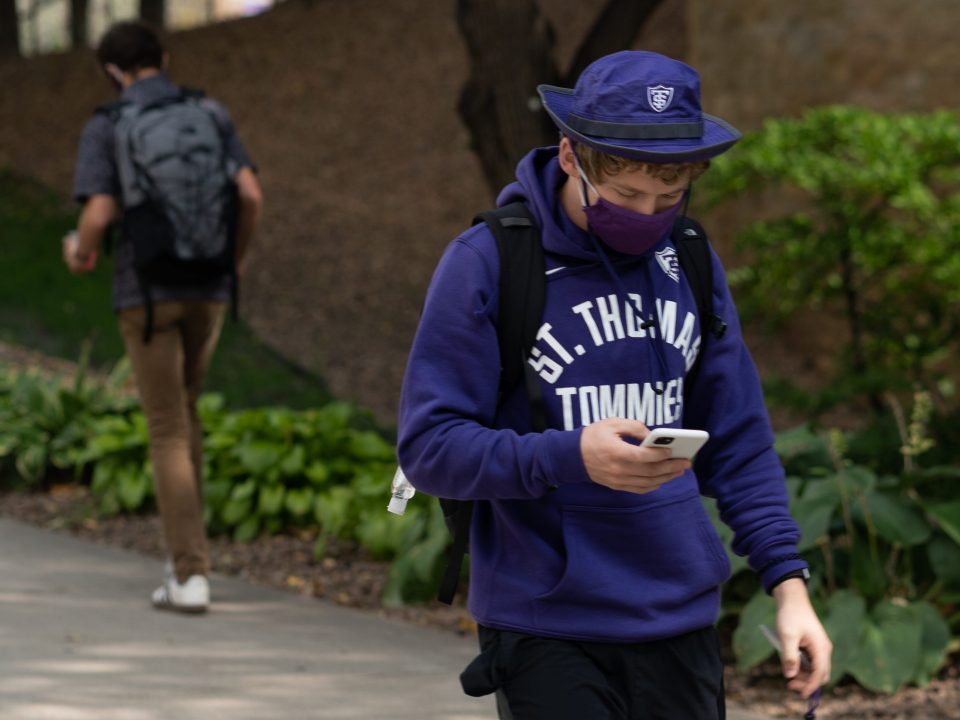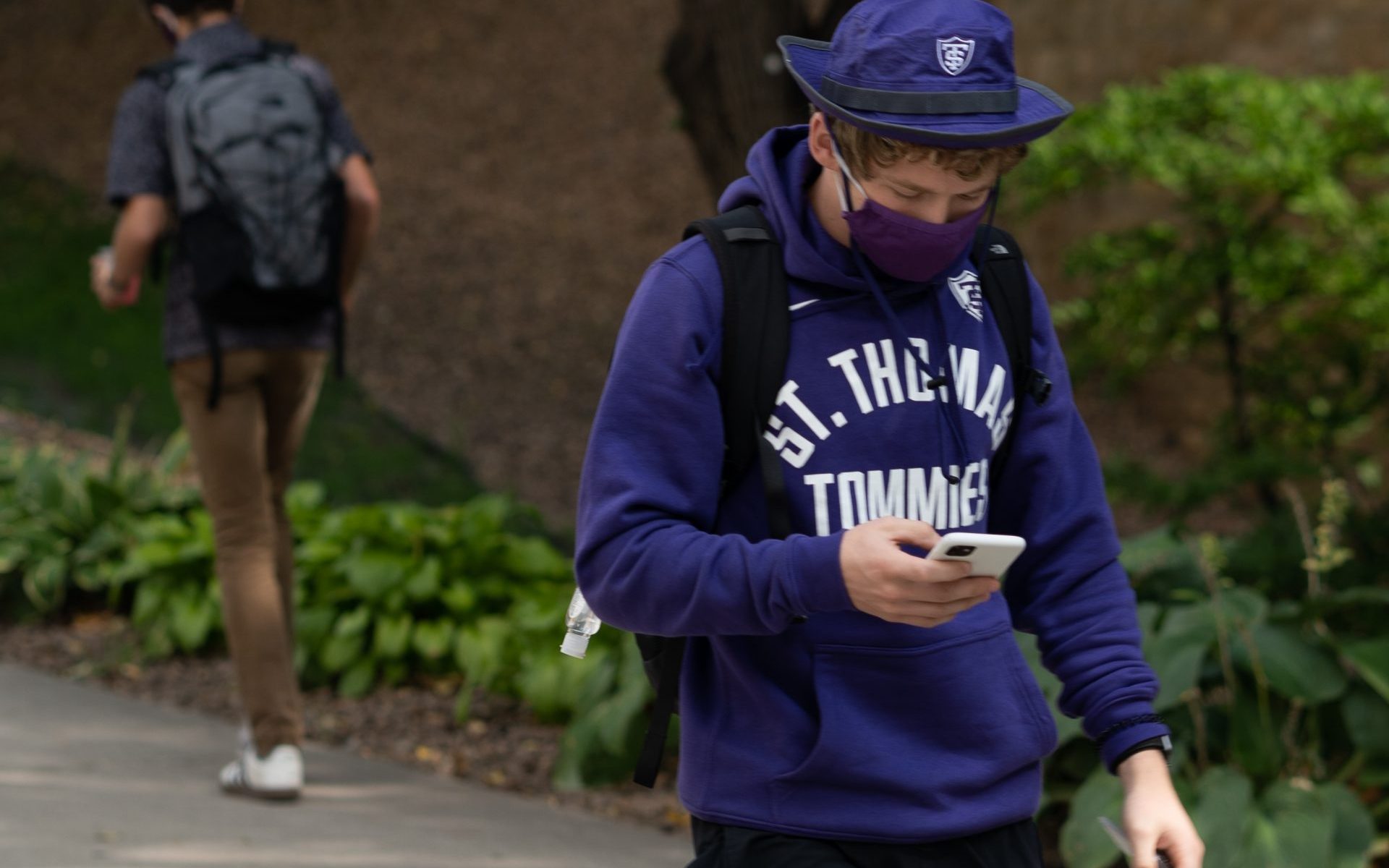
A St. Thomas student walks outside on campus with a mask on. The University Action and Response team announced that face coverings would be required indoors on campus regardless of vaccination status. (TommieMedia file photo)
Though St. Thomas requires that all community members get the COVID-19 vaccine, some have opted out of the mandate for medical, religious or conscientious reasons. Even with a 88% vaccination rate as of September 29, the University Action and Response team, a group of community leaders advising St. Thomas officials on pandemic prevention protocol, is monitoring COVID-19 infections and is prepared to tighten on-campus restrictions if needed.
Last year’s rules, such as limitations on dormitory guests and mask requirements in all public spaces, greatly impacted the lives of first-year students living on-campus, said now-sophomore Steven DeCook.
“The COVID restrictions didn’t really allow me to do much last year,” DeCook said, “and that definitely hindered my experience.”
With the university’s decision to decrease on-campus restrictions this fall, campus life is much more fun and engaging, said DeCook, who still lives in university housing.
UART first decided to implement a vaccine incentive program in late June that prompted over 1,000 community members to get a COVID-19 vaccine. At that time, the team did not think that they would need to mandate the vaccine, UART co-chair Karen Lange said.
“It was really the Delta variant that started to come about in July,” Lange said. “That’s where we needed to stop and kind of rethink what we’re doing around the vaccine mandate.”
On Aug. 2, UART announced that the university would require the COVID-19 vaccine for students and employees before returning to campus. Two weeks later it announced that face coverings would be required indoors on campus regardless of vaccination status.
“Those were all challenging decisions,” Lange said. “We spent a lot of time discussing and we spent time consulting with the Minnesota Department of Health. We consulted with other members of the St. Thomas community and tried to make the best decision we could.”
DeCook said that wearing masks in classrooms is one pandemic restriction that continues to affect his life on campus.
“You can’t get as much of a personal connection with someone if they’re behind a mask,” DeCook said.
UART convenes at least once each week to evaluate the number of infections from the previous week, discuss new issues and meet with the Minnesota Department of Health. Lange cautioned that UART is prepared to reinstate past restrictions if COVID-19 numbers increase.
“It’s much more flexible than it was last year,” Lange said, “but we would have to go back if we have a lot of cases.”
Lange said that the most important thing students can do to keep campus safe and open is to get the vaccine.
“If students are now comfortable getting the vaccine because it’s out of emergency use I would strongly recommend that they get the vaccine,” Lange said. “That’s the most important thing that people can do.”
Angeline Terry can be reached at Terr2351@stthomas.edu

